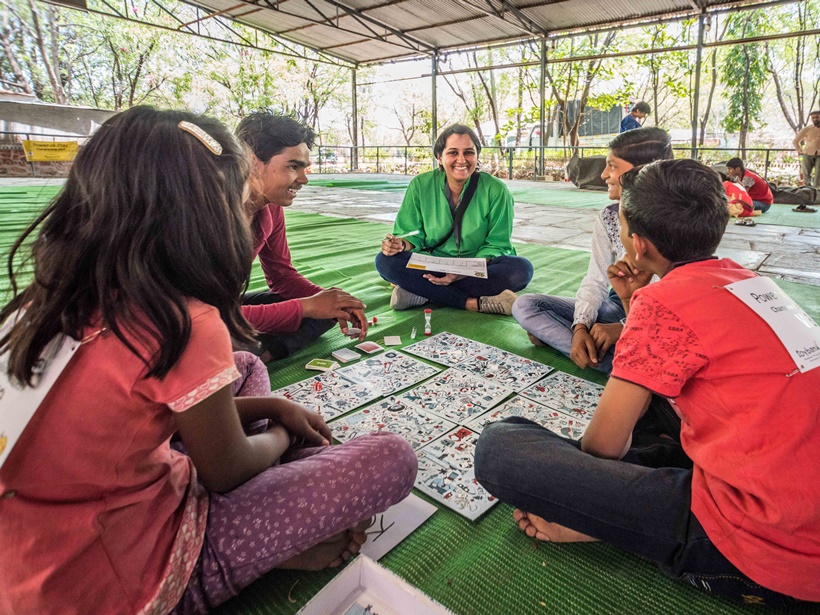
Ever thought about what playtime is to a child? Two non-profit organisations, which work for child rights advocacy, are doing their best to ensure developmental needs in childhood are met through toys, games and play.
By Ritika Jain
We are aware that the quality of early experiences and relationships that young children have is what builds neural circuits that lay the foundation for later development. We ourselves shop at Hamleys to pick out lacing beads for better motor skills, board books to boost imagination or bath toys for free play. But what becomes of these toys after our kids outgrow them? Why not donate perfectly good toys to another child who may not be in the position to afford them but can definitely benefit from them?
Toybank.in, a Delhi-based NGO, has a large volunteer base and 23 collection centres in five states where they sort donations into age-graded kits and distribute them to government schools, anganwadis, orphanages and slums across 24 states. This is largely carried out through volunteers, philanthropic souls for whom there is no greater joy than to see a child smile. Project coordinator, Christie Maria Jane, says “This March, we had a panel discussion on aiding education through play. Many academicians and grassroot partners, also founders of Protsahan, Orkids, etc, were involved. Sometimes, schools have fundraising campaigns too. The most fun part though, is conducting play sessions with the kids and having them tell you about their favourite toys. The only stumbling block is logistics…how to transport so many things to a village, say in the North East. But we’re constantly working on these challenges.”
Aditi Jain, a resident of Faridabad and mom to two, has been a volunteer for over 10 years. She became friends with the director, Vidyun Goel, while they were students at SRCC. She says it was Vidyun’s father who had nudged her in this direction. Aditi regrets that shortage of time doesn’t allow her to go for distribution anymore but she still collects around four cartons a month through word-of-mouth or when people do organic searches about toy donation and come across the website. Most of the toys received are for the 0-6 age group and some for 6-14 years, while 14-17 years is fewer. She urges more parents, schools and corporates to come forward and participate in this generous cause.
According to Vidyun, “The idea of recycling is not new; we have traditionally been giving our clothes and toys to our younger siblings. At The Toy Bank, we adopt this idea at a broader community level. Our mission is to give every underprivileged child an opportunity to have holistic development through toys, games and story books, and to bridge the gap between the privileged and underprivileged children by instilling values of sharing and caring in each child.” The gender-neutral, educative toy libraries help in retaining children’s interest in attending school and reducing dropout rates. Moreover, playing in groups enhances their interpersonal skills besides cognitive skills. At The Toy Bank, focussed attention is paid to toy kits being prepared for the visually impaired or children with Autism, Down Syndrome, Cerebral Palsy, etc.


Another organisation, Mumbai-based toybank.org, has set up over 258 play centres in nine districts of Maharashtra and has been active since 2004. Madhulika, the welfare program officer, says “Our model is completely volunteer-based and we have a few chapters in other cities, too. Through play, kids essentially improve their social skills. They become good people, they learn to share. Our core work is conducting around 40 play sessions on a weekly basis.” Shweta Chari, the Founder and CEO, has a straightforward message, “Personally for me, if a child is not playing, whether it is free play or structured play, then it is simply not being human as a whole. ‘Play’ has the power to create kinder and happier young people and our world needs that very badly. Play is as natural as breathing, and just as necessary. Depriving children of play leads to bottled-up depression and anger that bursts when children reach adulthood and lead to all sorts of crimes and anti-social activities. My vision for Toybank is very simple. I see ‘Play’ as a tool to integrate with our system, in our schools, communities and societies at large. Toybank is silently working towards achieving that.”
Source: Read Full Article